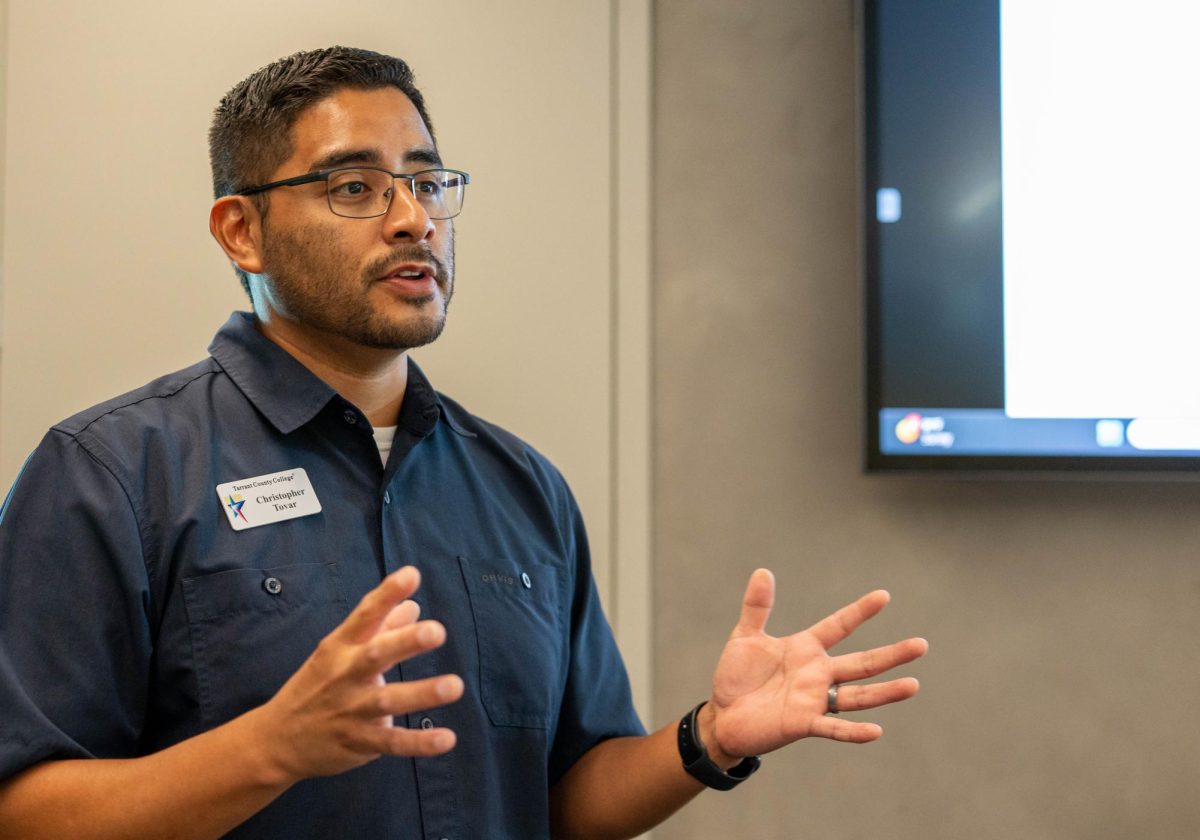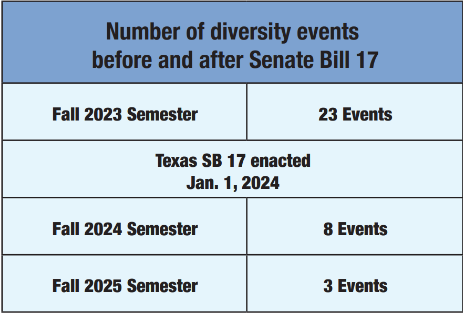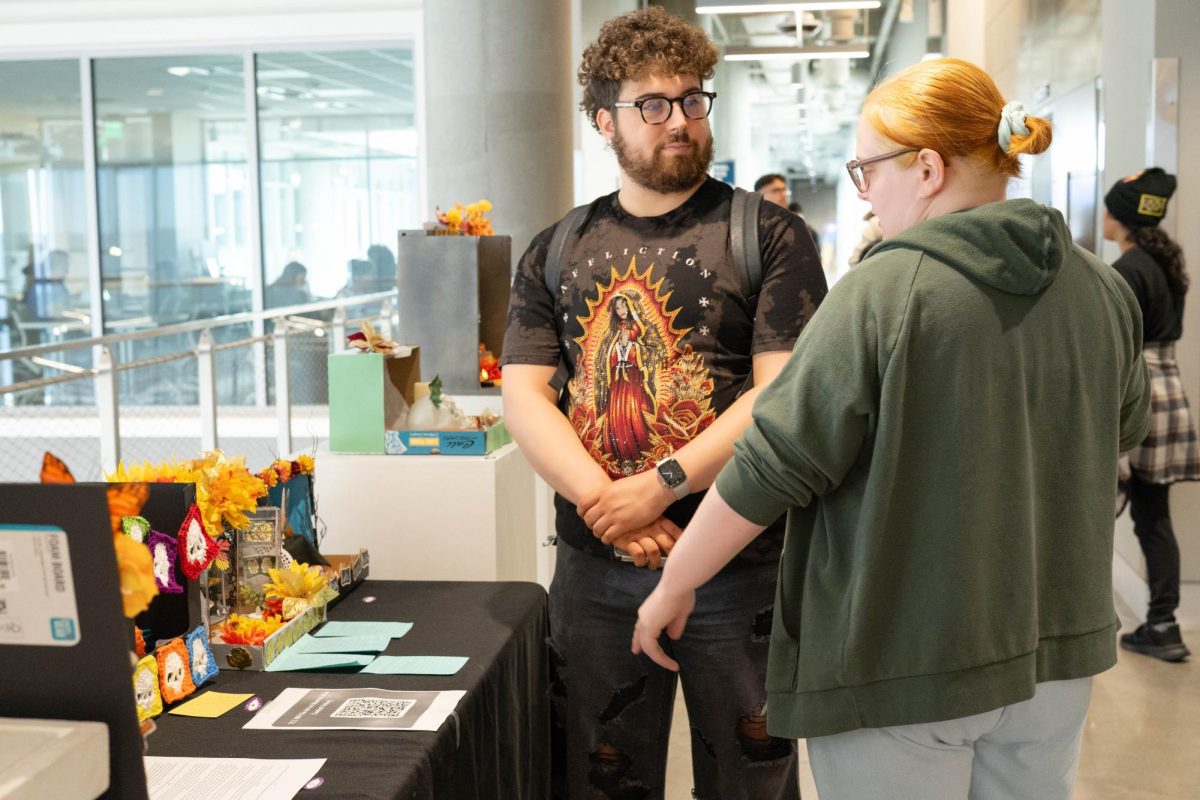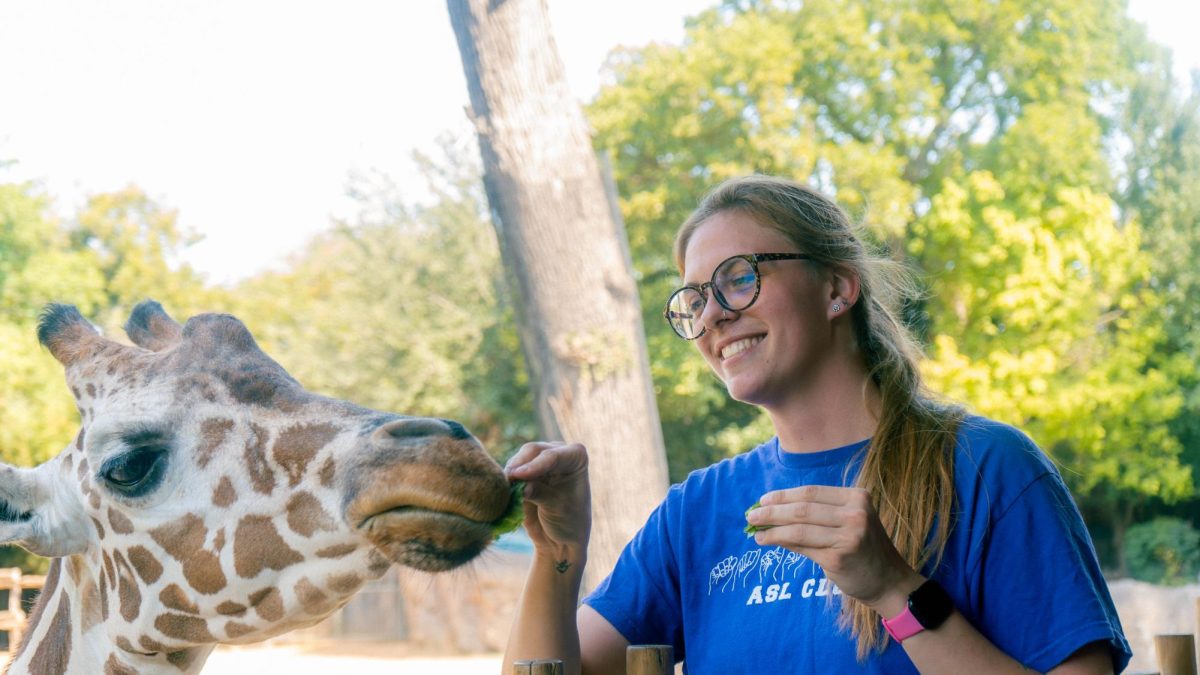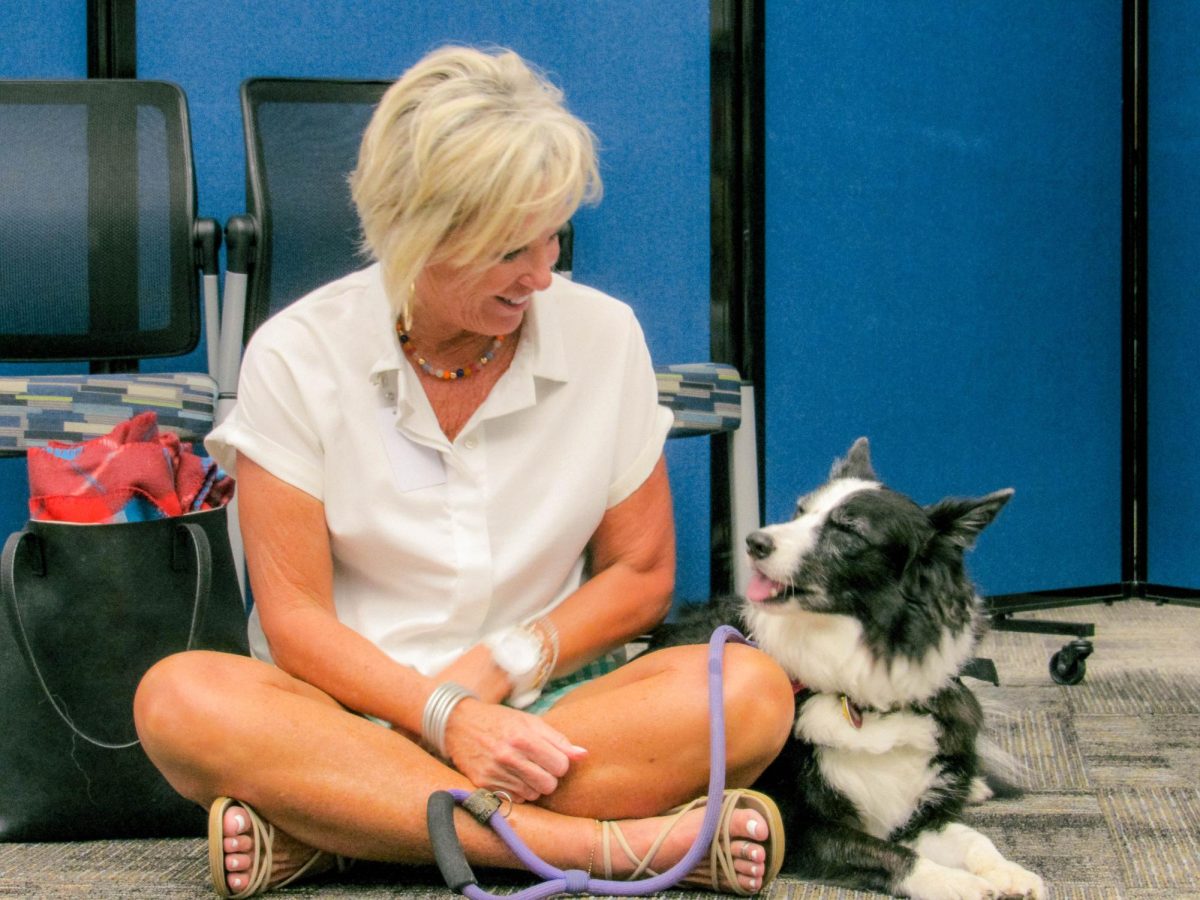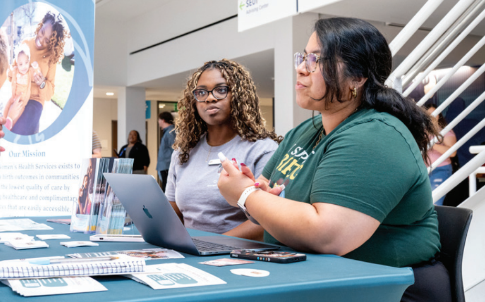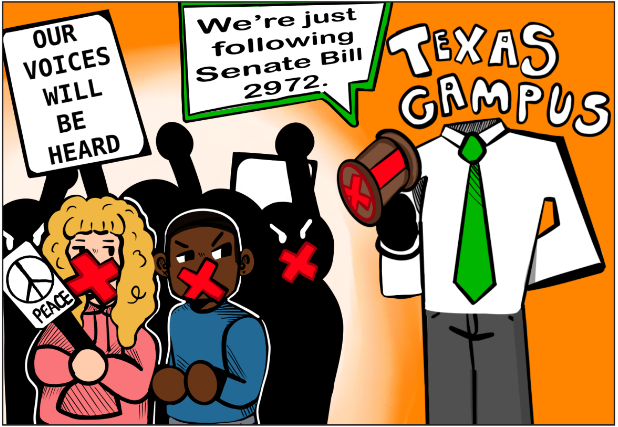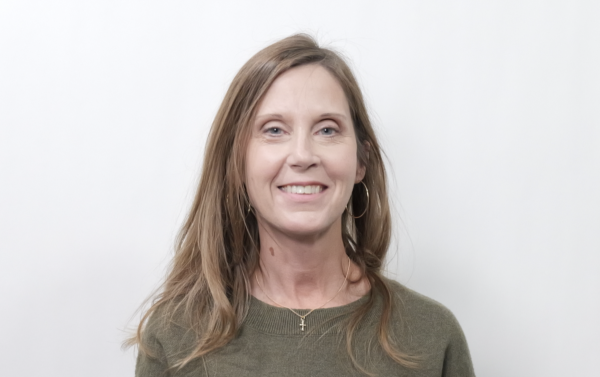Students can face many challenges when they transition from high school to college, including anxiety, depression, financial issues and the increased academic workload.
NW Campus hosted a session on “The Mental Load of College” on Sept. 18, where counselors shared different strategies to help prevent those struggles from affecting students’ academic success.
“Time management, financial concerns and social challenges, a lot of these are constant struggles with a lot of students,” counselor Christopher Tovar said. “A lot of things have changed and will change as you continue to get older.”
Some of these changes can include paying for tuition, navigating friendships and having increased family responsibilities. There’s also an adjustment to the requirements of college course work.
“It’s a balance of figuring it out,” Tovar said.
He said mood changes, anxiety, sadness, anger and suicidal ideation are all warning signs of someone going through a personal struggle that is taking a toll on their mental load.
“A mental load is a list of tasks that someone must remember to do,” said Nicole D’Alesandro, counselor supervisor.
She said there are four main areas of mental load that can affect a student’s health. The first is cognitive tasks, which include keeping track of schedules and being organized.
“Emotional labor is the second area, which is being in tune with our feelings, and our friends’ and family’s feelings,” D’Alesandro said. “Then there is decision fatigue, decisions we make on the regular.”
The last one is invisible work. D’Alesandro explained that it’s work we don’t pay attention to, such as emailing a professor or checking on a friend, but it can add to an already full plate.
Aside from everyday tasks, social life and school itself, college students have to carry the weight of their mental health as well.
Holly Diprisco, a student who has faced anxiety and depression, said she believes counseling can help.
“Mental health definitely impacts work ethic and the way you socialize with people,” she said.
Diprisco said she struggled with her mental health in high school.
“My work ethic was terrible,” she said. “It was so bad I almost flunked out of high school, but I’m here now, so it shows how you can really overcome it.”
Another student, Aliyah Almeida, said she struggled with depression, and it affected her schoolwork as well.
“I tried getting help, talking to my therapist, and then I also went to the inpatient … so I also got help from there,” she said.
Counselor Jasmine Flippin said establishing healthy boundaries and withdrawing toxic environments is the balance blueprint that will help students protect their energy.
“If it’s something within your capacity to control, honor yourself, and remove yourself,” she said.
Flippin also said it’s important to be self-aware.
“Find your center and reset,” she said. “Acknowledge what am I feeling? What is happening around me? What are my triggers?”
Journaling, meditation and therapy are strategies that can help process emotions,” she said.
“We’re human,” Flippin said. “We’re imperfect, so sometimes we make mistakes. It’s not about perfection. It’s about finding balance.”
























